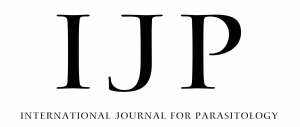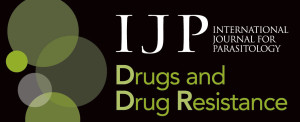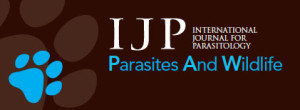Editor-in-Chief: Brian Cooke.

The International Journal for Parasitology publishes the results of original research in all aspects of basic and applied parasitology, including all the fields covered by its Specialist Editors, and ranging from parasites and host-parasite relationships of intrinsic biological interest to those of social and economic importance in human and veterinary medicine and agriculture. Original research includes the development of novel and innovative concepts and ideas, as well as experimental and observational science that raises new hypotheses. Because of its breadth of discipline coverage, the aims and significance of all contributions should be made clear to readers who are not expert in the particular subject of papers. In applied parasitology, it will tend to favour contributions of broader significance to the subject rather than narrow, highly specialised applications. The principal form of publication is the full length paper which contains substantial results from a major program of research. The Journal also provides a medium for the publication of shorter, but complete, papers reporting highly significant original findings, as Succinctus articles. It also publishes Thematic Issues incorporating papers on a topical theme and commissions papers with emphasis on shorter, focussed Reviews of topical issues and strategically important subjects. The Journal encourages critical comment and debate on matters of current controversy in parasitology via “Current Opinions”. IJP have a facebook page www.facebook.com/IJPara

Editors in Chief: Andrew Kotze, Kevin Saliba.
The International Journal for Parasitology – Drugs and Drug Resistance publishes the results of original research in the area of anti-parasite drug identification, development and evaluation, and parasite drug resistance. The journal also covers research into natural products as anti-parasitic agents, and bioactive parasite products. Studies can be aimed at unicellular or multicellular parasites of human or veterinary importance.
A list showing the types of articles that are considered is included below. Original research includes the development of novel and innovative concepts and ideas, as well as experimental and observational science that raises new hypotheses. Because of its breadth of organism coverage, all contributions should include relevant information about the parasite of interest in order to be comprehensible to non-experts in the particular subject of the articles. The principal form of publication is the full length article which contains substantial results from a major program of research. The journal also accepts brief reports that have similar subject scope as the full-length article, but do not merit a full-length publication.
In addition, the journal provides a medium for highlighting selected articles reporting highly significant original findings, as Editor’s Choice Manuscripts. It also commissions articles with emphasis on shorter, focused Reviews of topical issues and strategically important subjects. The journal encourages critical comment and debate on matters of current controversy in the area of parasite drug resistance and anti-parasite drugs via “Current Opinions”.
This title is fully open access and therefore funded not through library subscription payments but through author fees. If you would like your article to be published open access, but you genuinely cannot afford these fees, then individual waiver requests are considered on a case-by-case basis and may be granted in cases of genuine need. Priority for this waiver programme will be given to applications by authors from countries eligible for the Research4Life programme (see http://www.research4life.org/institutions.html).
Types of articles considered:
Compound library screening for inhibitors against enzymes or whole parasites
Drug target validation (chemical and/or genetic)
Drug target identification (must include some inhibitor studies rather than characterisation of an enzyme, for example)
Drug structure-activity relationship studies
Mechanisms of drug action and resistance
Reports of the development of drug resistance both in the field and laboratory
Studies on drug toxicity to the host (either on single host cells or whole organism)
Reports on toxicity in the field
Computational approaches to drug discovery or drug-target identification
Development of assays directed at screening for inhibitors
Drug combination studies
Natural products as anti-parasitic agents
Bioactive products produced by parasites
Use of live parasites as immunomodulatory agents
Epidemiological aspects of the emergence and spread of parasite drug resistance
Human clinical trials.

Editors in Chief: Andrew Thompson.
The International Journal for Parasitology: Parasites and Wildlife (IJP-PAW) publishes the results of original research on parasites of all wildlife, invertebrate and vertebrate. This includes free-ranging, wild populations, as well as captive wildlife, semi-domesticated species (e.g. reindeer) and farmed populations of recently domesticated or wild-captured species (e.g. cultured fishes). Articles on all aspects of wildlife parasitology are welcomed including taxonomy, biodiversity and distribution, ecology and epidemiology, population biology and host-parasite relationships. The impact of parasites on the health and conservation of wildlife is seen as an important area covered by the journal especially the potential role of environmental factors, for example climate. Also important to the journal is ‘one health’ and the nature of interactions between wildlife, people and domestic animals, including disease emergence and zoonoses.
The principal form of publication is the full-length article which contains substantial, original research. The journal also accepts brief reports that have similar subject scope as the full-length article, but do not merit a full-length publication. In addition, the journal commissions articles with emphasis on shorter, focused reviews of topical and emerging issues as well as strategically important subjects. The journal encourages critical comment and debate on matters of current controversy in the area of parasites and wildlife via “Current Opinions”.
This title is fully open access and therefore funded not through library subscription payments but through author fees. If you would like your article to be published open access, but you genuinely cannot afford these fees, then individual waiver requests are considered on a case-by-case basis and may be granted in cases of genuine need. Priority for this waiver programme will be given to applications by authors from countries eligible for the Research4Life programme (see http://www.research4life.org/institutions.html).


